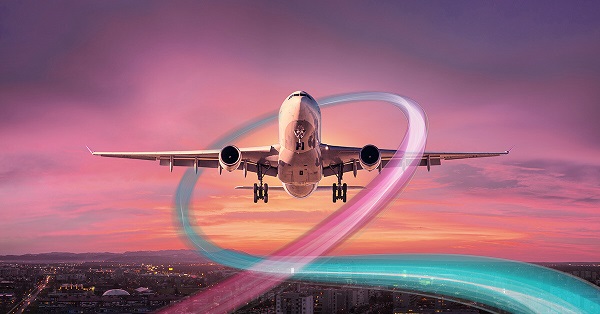The travel industry has always embraced innovation, from the earliest days of computerized reservation systems to today’s AI-driven tools.
However, the next big leap could redefine how we plan, book, and experience travel—through autonomous digital travel agents. These intelligent systems leverage artificial intelligence (AI), machine learning, and natural language processing to provide travelers with personalized, real-time, and hassle-free planning and booking experiences.
The idea of Autonomous Digital Travel Agents is something that big travel technology companies like Expedia are closely monitoring.
“There’s a lot more around AI that Expedia needs to worry about than just developing a new trip planner,” said Ariane Gorin, president and CEO of Expedia Group at the Phocuswright conference in Phoenix recently.
But any real change in the way people plan and book travel will take time, she adds.
Yet according to technology firm Epam nearly every company involved in tourism uses at least one AI-powered technology, with market forecasts predicting a value of $1.2 billion by 2026
In this article, we’ll explore the technologies behind autonomous travel agents, their potential benefits, challenges, and the transformative impact they could have on the travel landscape.
What Are Autonomous Digital Travel Agents?
Autonomous digital travel agents are AI-powered systems designed to independently assist travelers in organizing their trips. Unlike traditional travel agents or even online booking platforms, these systems operate without human intervention, learning from user preferences and external factors to provide customized itineraries, manage bookings, and even troubleshoot issues in real time.
These agents combine several technologies, including:
- Artificial Intelligence (AI): To process data and make decisions.
- Natural Language Processing (NLP): For seamless interaction with users via text or voice.
- Machine Learning (ML): To refine recommendations based on past interactions.
- Robotic Process Automation (RPA): For managing repetitive tasks like booking confirmations and cancellations.
- Big Data Analytics: To predict trends, analyze user behavior, and optimize travel plans.
Key Features and Capabilities
Autonomous travel agents aim to go beyond just booking flights or hotels. Here are some of their potential features:
1. Hyper-Personalized Travel Planning
By analyzing user preferences, browsing history, and past travel experiences, autonomous agents can craft highly tailored itineraries. For example, they might recommend a hidden boutique hotel or a local restaurant based on the traveler’s interests.
2. Real-Time Adjustments
Unexpected flight delay? Change in weather conditions? These agents can proactively rebook flights, adjust itineraries, or suggest alternative activities.
3. Seamless Multimodal Booking
Instead of separately booking flights, trains, or taxis, the agent can coordinate end-to-end travel solutions, ensuring smooth transitions between modes of transportation.
4. Virtual Travel Assistance
During the journey, travelers can interact with their agent for recommendations, navigation assistance, or even language translation.
5. Cost Optimization
By monitoring real-time pricing and historical data, the agents can find the best deals, reducing travel costs.
Benefits for Travelers and Industry Stakeholders
For Travelers
- Convenience: Autonomous agents handle the entire travel process, from planning to execution.
- Time-Saving: No more hours spent comparing prices or reading reviews.
- Personalized Experiences: Every trip is customized to fit individual preferences.
For Travel Companies
- Increased Efficiency: Automating routine tasks reduces operational overhead.
- Enhanced Customer Experience: Providing a seamless service leads to higher customer retention.
- Market Insights: Data gathered by these agents can help identify trends and improve offerings.
Challenges and Considerations
While promising, the implementation of autonomous digital travel agents faces several hurdles:
1. Data Privacy and Security
Travel agents require access to sensitive data, such as personal information and payment details. Ensuring robust cybersecurity measures and adhering to regulations like GDPR is crucial.
2. Reliability and Trust
Building trust in fully autonomous systems will take time. Early glitches or errors in bookings could deter users from adopting the technology.
3. Overcoming Cultural Nuances
Travel preferences often vary based on cultural differences. Agents need to account for these subtleties to provide globally appealing services.
4. Job Displacement
As automation takes over, traditional travel agents may face reduced demand. However, this could also lead to the creation of new roles in technology and AI management.
Future Outlook
The potential of autonomous digital travel agents is vast, with the technology poised to integrate into the metaverse, enabling virtual pre-travel experiences. Imagine exploring a digital twin of Paris before booking your trip, guided by an AI agent.
Additionally, as AI continues to evolve, these agents may form part of a broader smart ecosystem, interacting with other autonomous systems like self-driving cars or smart home devices to further enhance travel convenience.
Conclusion
Autonomous digital travel agents represent the future of travel, offering unmatched convenience, personalization, and efficiency. As the technology matures, it has the potential to revolutionize the way we explore the world, making travel planning as effortless as a simple conversation.
However, realizing this vision will require addressing key challenges, from data security to cultural adaptability.
For travelers, the promise is clear: a world where your perfect trip is only a command away. For the travel industry, it’s an opportunity to redefine the customer experience and unlock new growth opportunities.
The journey ahead is exciting, and autonomous digital travel agents are at the forefront of this transformation.
Also Read
How to choose the right tour agency for you
Understanding industry 4.0: What it means for businesses today
